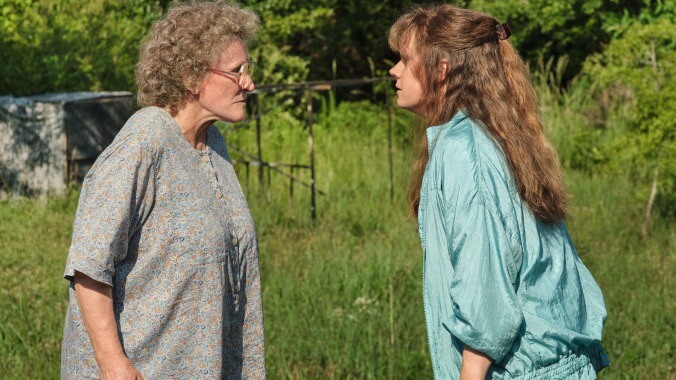The Hillbilly Elegy gang swears that the film is super relatable and "transcends politics"

Sitting at a 26% on Rotten Tomatoes, the Ron Howard-directed Netflix adaptation of J.D. Vance’s memoir, Hillbilly Elegy, failed to garner much love from critics, despite its stacked cast. While some filmmakers in his position might’ve just accepted the momentary loss—especially if they are fortunate enough to have a career as heralded as his—Howard. joined by Vance himself, took the opportunity to defend the film on Monday during an interview with CBS This Morning, hypothesizing that the majority of critics based their negative critiques on politics that are not explicitly addressed in the film.
“I do feel like they’re looking at political thematics that they may or may not agree with, that honestly aren’t really reflected or aren’t front-and-center in this story,” Howard said in response to a question about the negative reviews. ““What I saw was a family drama that could be very relatable. Yes, culturally specific, and if you’re fascinated by that, I hope you find it interesting. If you’re from the region, I hope you find it authentic, because that was our aim and effort. But I felt it was a bridge to understanding that we’re more alike than we are different.”
Howard’s ideas of relatability echo those of stars Amy Adams and Glenn Close, who recently spoke with NME. “I think the themes of this movie are very universal,” Adams said. “Whether it be generational trauma, whether it be just examining where we come from to understand where we’re going and who we are. I think the universality of the themes of the movie far transcend politics.” Close added, “It wasn’t made with politics in mind, it was made with Ron’s intent. I think he succeeded magnificently to tell the story of a very specific family.”
But the seemingly pervasive issue with Howard’s much-maligned iteration doesn’t appear to have as much to do with politics as it does with possibly lampooning the people the creators claim to honor. Our own Katie Rife spoke to this matter in her review: “To give it just a small crumb of credit, Hillbilly Elegy, the new Ron Howard film based on J.D. Vance’s 2016 memoir of the same name, doesn’t play as an apology for the toxic racism of white America. But like those New York Times profiles, it views its subjects as zoo animals, offering the same enduring stereotypes about Appalachia—namely, that it’s full of people too ignorant to realize that they’re being victimized by their own bad choices—peddled by Vance’s book.” Richard Phippen also notes this in his review of the film for NME: “ In casting A-list stars and shooting in a glossy format, Howard has built a film that betrays the very people its apparently trying to celebrate. There’s nothing sincere about it, rather, it feels like elite Hollywood folk slumming it in a misguided attempt to tell some sort of necessary truth.”
Despite the onslaught of negative critique, Hillbilly Elegy reached Netflix’s list of top 10 titles during its first week on the streaming platform, so it appears that the reviews—no matter how unfair Howard and company find them—aren’t stopping anyone from watching.